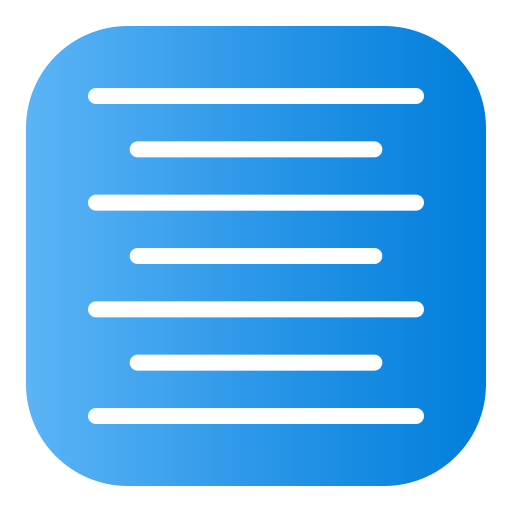This training focuses on AI-based approaches and tools for knowledge discovery, providing an overview of search engines using AI technologies and tools that combine searching, data extraction, and summarizing.
 By the end of this training, learners should:
By the end of this training, learners should:
- understand the difference between lexical search and natural language search
- be familiar with academic search engines that use AI technologies
- understand advantages and limitations of AI-assisted search
- be aware of the advantages and limitations of the tools that combine searching, data extraction, and summarizing
- understand how open access content and open metadata can help improve knowledge discovery
 Training outline
Training outline
- The difference between lexical and natural language search
- Limitations of AI-assisted search
- AI-assisted search in indexing databases (Scopus and Dimensions)
- AI research assistants (Elicit, Consensus, Perplexity, etc.)
- Aggregators and AI (OpenAIRE Explore, Open Knowledge Maps, Core GPT)
Resources for facilitators and learners
 Publications and blog posts
Publications and blog posts
- Tay, Aaron. 2024. ‘Boolean vs Keyword/Lexical Search vs Semantic — Keeping Things Straight’. Medium. 8 March 2024.
- Tay, Aaron. 2024. ‘Things I Am Still Wondering about Generative AI + Search in 2024 - Impact of Semantic Search, Generation of Answers with Citations and More.’ Aaron Tay’s Musings about Librarianship. 26 January 2024. https://doi.org/10.59350/vh0zy-9k287.
- Kubacka, Teresa. 2024. ‘Guest Post - There Is More to Reliable Chatbots than Providing Scientific References: The Case of ScopusAI’. The Scholarly Kitchen. 21 February 2024.
- Aguilera Cora, Elisenda, Carlos Lopezosa, and Lluís Codina. 2024. ‘Scopus AI Beta: Functional Analysis and Cases’. e-Repositori. http://hdl.handle.net/10230/58658
- Tay, Aaron. 2024. ‘Trust in AI: Evaluating Scite, Elicit, Consensus, and Scopus AI for Generating Literature Reviews’. HKUST Library.
- Tay, Aaron. 2024. ‘List of Academic Search Engines That Use Large Language Models for Generative Answers Using Retrieval Augmented Generation (RAG)’. Aaron Tay’s Musings about Librarianship.
- Tay, Aaron. 2024. ‘A Conceptual View of Information Retrieval - Can We Do Better with AI?’. Aaron Tay’s Musings about Librarianship.
- ‘Powering Research with Dimensions AI Assistant’. 2023. Dimensions.
- Tay, Aaron. 2023. ‘Large Language Models – More Developments and Thoughts’. Medium.
- Tay, Aaron. 2023. ‘How Q&A Systems Based on Large Language Models (Eg GPT4) Will Change Things If They Become the Dominant Search Paradigm - 9 Implications for Libraries’. Aaron Tay’s Musings about Librarianship.
- Tay, Aaron. 2023. ‘Why Entering Your Query in Natural Question Leads to Better Result than Keyword Searching with the Latest AI Powered (Dense Retrieval/Embedding Models) Search’. Aaron Tay’s Musings about Librarianship’.
- Tay, Aaron. 2023. ‘JSTOR Generative AI Pilot - Or Is Semantic Search Coming for Academic Databases?’. Aaron Tay’s Musings about Librarianship’.
- Pride, David, Matteo Cancellieri, and Petr Knoth. 2023. ‘CORE-GPT: Combining Open Access Research and Large Language Models for Credible, Trustworthy Question Answering’. arXiv. https://doi.org/10.48550/arXiv.2307.04683.
- ‘About’. Open Knowledge Maps. https://openknowledgemaps.org/about.
 Videos, webinars, online tutorials
Videos, webinars, online tutorials
- IBM Technology, 2023. The 7 Types of AI - And Why We Talk (Mostly) About 3 of Them.
- Andy Stapleton, 2024. How To Use Perplexity AI For Research - Terrifyingly SMART! (Perplexity is freemium)
- Science Grad School Coach, 2024. Discover The Best Research Articles For Your Questions Using Consensus AI! (Consensus is freemium)
- OpenAIRE, 2023. OpenAIRE EXPLORE - Service Video.
- Aaron Tay, 2023. The Possible Impact of AI on Search and Discovery.
 Library guides
Library guides
- ‘LibGuides: How to Search for Information: AI in Information Searching’. Haaga-Helia University of Applied Sciences - LibGuides.
